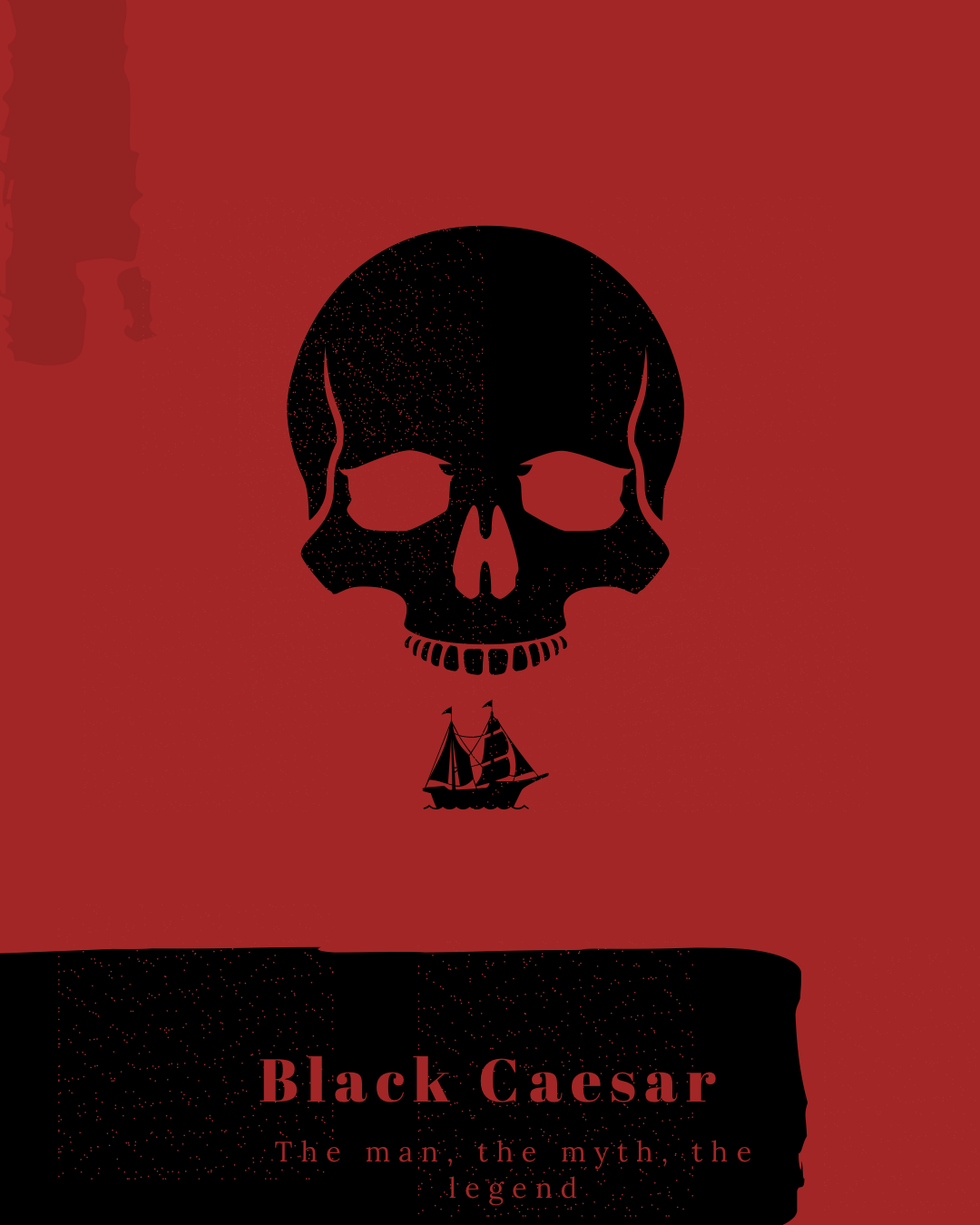
15 Sep The man, The myth, the Legend: A pirate Named Black Caesar
History as we know it does not discuss people of African descent as pirates. The tales normally tell of some swashbuckling European hero or villain rebelling against authority,liberating treasures untold, and maybe kidnapping a woman or two along the way. However, piracy played an important role in disrupting the history of Blacks as enslaved people only, and Black Caesar is a well-known disruption of this tale. The golden age of piracy (1650-1730s) is nestled within the Transatlantic slave trade (15th to 19th century). One of the targets was slave ships, where pirates ransomed or sold African people to plantation owners. Or, depending on the crews’ needs, they recruited the future-enslaved to work on pirate ships. Despite their reputation for anarchy, pirate ships were normally egalitarian societies. Each member of the crew was given a vote in which ventures were taken and an equal share in any treasures recovered. This generally also extended to any Africans who were members of the crew. One such pirate was called Black Caesar. Between the 17th and 18th century, the man who would be called Black Caesar was a West African chief who had successfully evaded enslavement.
Numerous times, slavers had tried to bring him and his people into captivity, but because of Black Caesar’s intelligence they were able to escape bondage. However, one sea captain brought Black Caesar and some of his people onto his ship to show them the gold and silk for possible trade. They were fed and entertained while aboard the ship. After some time, Black Caesar realized that the ship had moved away from the shore and that they had been deceived and captured, with no way to return home. On the long journey toward the Americas, Black Caesar refused to eat or drink to protest their capture, but one of the crew members made sure that he had sufficient rations to survive the voyage. As they approached Florida, their ship encountered a hurricane and sank killing all but two men. Caesar and his shipmate-friend gathered as many supplies and munitions as possible into a boat and rowed to the Florida Keys. Black Caesar and this crew member became pirates to support themselves, as Black Caesar would automatically have been assumed to be a slave, or slaveable, had they ventured into American society.
They posed as shipwrecked sailors in need of help, until they boarded and took over a passing ship. This ruse worked for several years and the two were able to gather a great hoard treasure. It was during his years as a pirate that he earned his name because of his African origins and beard. It is believed that Caesar and this crew member argued (over a captured woman) and the crew member died in the fight. As the story goes, Black Caesar eventually became a lieutenant on Blackbeard’s ship, Queen Anne’s Revenge. In 1718, Blackbeard’s ship battled the British Royal Navy and was captured. Blackbeard was beheaded for the crime of piracy. Black Caesar was one of the few crew members who survived the fight. He was tried and found guilty of piracy Black Caesar, The Pirate in Williamsburg Virginia. Despite his African origins, Black Caesar was hanged for his crimes unlike other Black pirates who were normally sold or returned into slavery.
However, rumor has it that there were at least two pirates of African descent who were called Black Caesar. Some suspect that the Black Caesar who was hanged as a member of Blackbeard’s crew was not our West African Chief. Instead, he may have lived on the spoils of his piracy in Elliott Key, Florida, a free man until the day he died.
–Trezlen Drake



No Comments